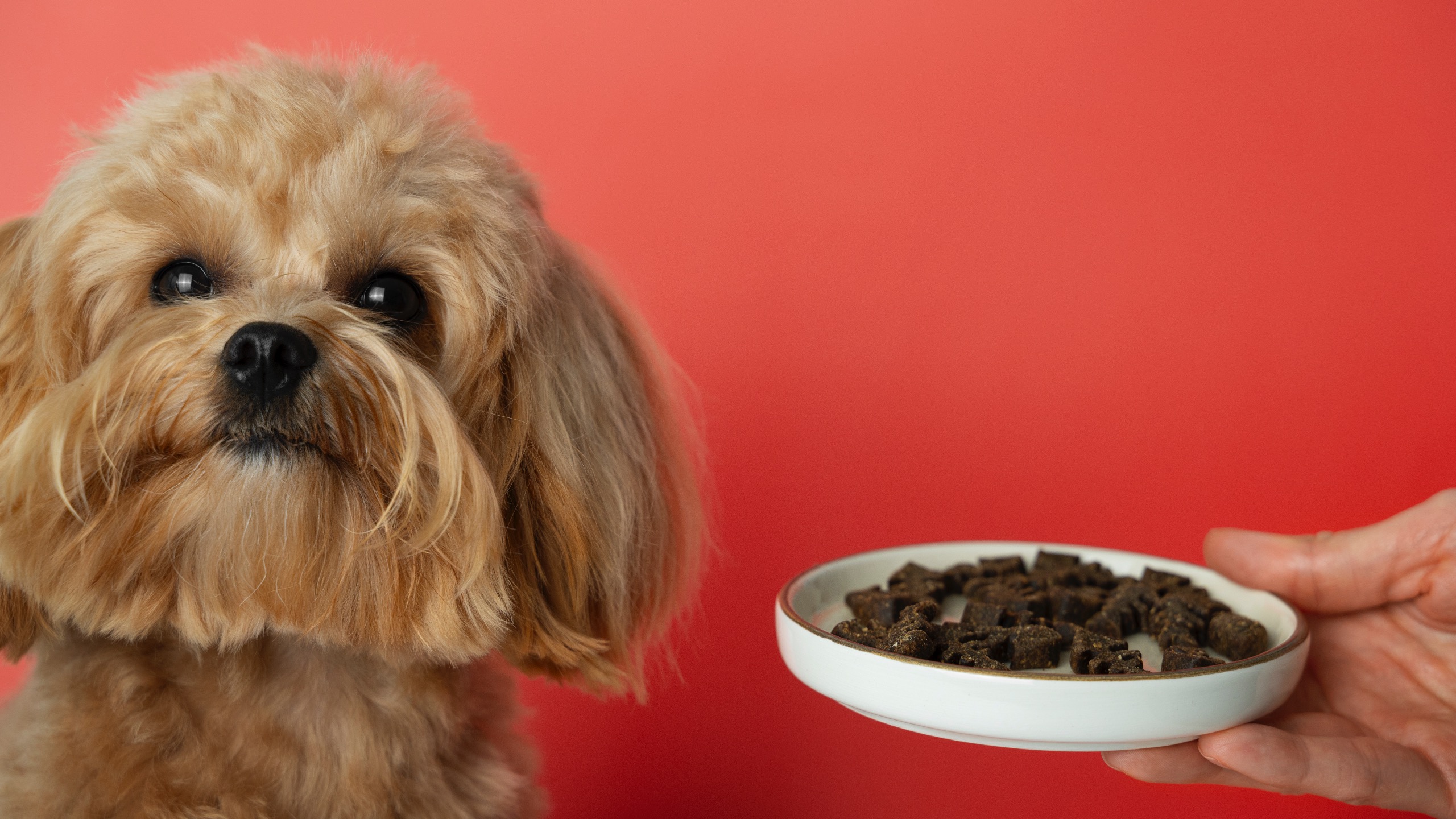Your dog’s diet is more than just fuel—it plays a vital role in their hygiene and overall health. The quality of food you provide affects everything from their coat’s shine to dental health and digestion. Let’s dive into how proper nutrition can improve your dog’s well-being and hygiene.

The Link Between Nutrition and Skin & Coat Health
A balanced diet rich in essential fatty acids, vitamins, and proteins is crucial for maintaining healthy skin and a shiny coat. Omega-3 and Omega-6 fatty acids help reduce dryness and itching, preventing common skin issues. Dog foods that include fish oil or flaxseed can enhance coat texture and minimize dandruff. Therefore, choosing nutrient-rich dog food is essential to ensure your pet’s coat remains clean and manageable.
Dental Hygiene and Diet
What your dog eats significantly impacts their oral hygiene. Kibble, for instance, can help scrape away plaque buildup, whereas soft, wet food may contribute to more plaque accumulation. Dental-friendly chews and treats can further promote healthy teeth and gums. A diet low in sugar and artificial additives can prevent oral issues like bad breath and gum disease. Regularly check your dog’s mouth and gums for signs of discomfort, and include dental checkups as part of their health routine.
Digestive Health: Why It Matters
A healthy digestive system is crucial for your dog’s hygiene and overall health. Poor digestion can lead to problems like gas and bloating, which not only affect your dog’s comfort but can also create hygiene issues at home. High-quality dog foods with probiotics and fiber ensure smooth digestion, resulting in consistent stool quality and better hygiene.
Hydration and Its Role in Hygiene
Don’t forget that water is an essential part of your dog’s diet. Hydration impacts everything from coat condition to joint health. Dehydrated dogs may experience dry skin and become prone to infections. Ensure your dog always has access to fresh water, especially after meals or exercise.
Red Flags of a Poor Diet
A poor diet can lead to several hygiene and health problems, such as:
- Bad breath: Often an indicator of poor diet or inadequate dental care.
- Greasy or matted fur: Could signal a deficiency in essential nutrients.
- Loose or irregular stools: May indicate your dog isn’t digesting their food well.
If you notice any of these signs, consult your vet for dietary adjustments.
Conclusion: Building a Healthy Routine
Understanding how your dog’s diet impacts their hygiene and health is essential for their long-term well-being. Choose nutrient-rich foods, ensure they stay hydrated, and include oral health solutions to build a comprehensive wellness routine. Consult with your vet to find the best food and supplements that cater to your dog’s specific needs.
